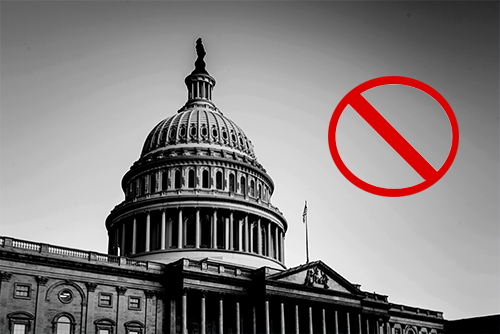
The 7 Deadly Sins of Advocacy Day
If you’re planning an advocacy day in spring 2018, you’re not alone. From February through early May, an estimated ten to fifteen thousand advocates come to DC per week to meet with their legislators and staff. Yes, that’s per week. How can you rise above the crowd and get the meetings you need? Avoiding the following “sins” is an important first step!
Sin #1 – Non-Constituency
You’ll waste a lot of time if you don’t focus on constituency-based meetings. Legislators and staff rarely meet with anyone outside their district, particularly when they receive dozens of requests per day. If you’re scheduling for a group of advocates, each of whom have multiple locations in multiple districts (for example, businesses with headquarters in multiple locations), be sure to collect those addresses.
Sin #2 – Non-Written Requests
You’ll generally be asked to submit your initial request via e-mail, web form or—in the case of one office that shall not be named—fax. To find out the best method, check the contact tab on the Congressperson’s website (accessible through www.house.gov and www.senate.gov) and use that method.
Sin #3 – Assumption
Never assume that your meeting request actually made it to the office or that the scheduler will just magically get back to you. With hundreds of requests to go through a day, things get lost. Often. When you call to follow-up, be sure to say, “I’m calling regarding a scheduling request I already sent in.” That way you can avoid an unnecessary discussion about how to send in a request. Also, be sure to make a note about when they’ll be able to look at your request. It’s a waste of your time and theirs to call them every week if they’ve already told you they won’t be able to consider the request until the week before the event (which is common).
Sin #4 – Member-itis
Recognizing advocates can be a little prickly when it comes to meeting with staff. Never, ever insist on meeting only with the member, unless you’re willing to give up the meeting altogether. Getting legislator meetings 20 to 25 percent of the time is an outstanding percentage for any group. If you’re offered a meeting with a staff person, go ahead and set it up, and see Sin #6 for tips on helping your advocates not be disappointed with the outcome.
Sin #5 – Inflexibility
Inflexibility is a problem particularly when it’s combined with high expectations. Too many groups offer a very small meeting window and then, are irritated when staff or members are not available in the specific time slot they’ve designated for meetings. Try to have an entire day available – and suggest your advocates bring a good book.
Sin #6 – Training only on Policy, not Process
Yes, it’s important that advocates understand the asks. You want to be sure they can walk into an office with confidence and state that they are asking for $6 billion for such-and-such a program or for the legislator to co-sponsor such-and-such a bill. But remember that most advocates are intimidated by this information. They become concerned that if they forget the bill number or the appropriation amount they will look stupid and ruin the entire experience for the whole organization. Unfortunately, many groups don’t focus on one of the most important advocacy day skills – how to have an effective meeting. Your tips in this area should include details on how to deliver a message, making the constituency connection, telling a personal story and, of course, the value of meeting with staff. It’s important and helpful to make sure advocates understand they don’t have to have all the answers. It’s perfectly acceptable to say, “I don’t know, but I’ll get back to you”.
Sin #7 – Abandonment
Once your lobby day is over, your advocacy for the year isn’t finished. In fact, it’s just begun. Be sure you’ve provided your advocates with specific ideas on how to work with the offices you met with on an ongoing basis. This might include training them on how to attend a townhall meeting, conduct a district visit, or connect via social media.
Stephanie D. Vance, also known as the “Advocacy Guru”, is the author of five books including Citizens in Action: A Guide to Influencing Government and the recently released The Influence Game. She’s a 25 year veteran of Washington, D.C. political scene and has held positions as a lobbyist, grassroots consultant, and Congressional aide.
To further assist you in your Advocacy Day, download the Advocacy Day Assistant App! With the Advocacy Day Assistant App, you’ll be able to coordinate and schedule meetings with ease, stay in constant contact with your advocates and get real-time feedback all in the palm of your hand. Don’t wait, check it out today.


